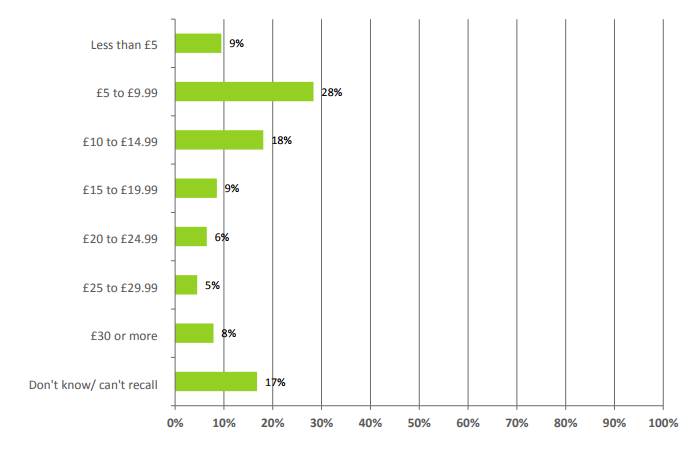The research for the CAA from YouGov of almost 15,000 adults, just under a third of which had flown as part of a group where they were the ticket holder found that:
- Just over half of respondents reported that their airline informed them before they booked their flight that they would need to pay to ensure their group could sit together
- Ten per cent of respondents said that they had been informed after they booked; a further ten per cent said that they were never made aware by their airline that they may need to pay more to guarantee sitting together
- Although the vast majority of respondents were aware that they might not be able to sit together even if they booked as a group, almost half believed that their airline would automatically allocate them seats together
- However, two in five respondents thought that their airline would not automatically sit them together
- Around half of all passengers who sat together did not have to pay an additional charge to do so. However, seven percent of respondents that ended up sitting together said that they had to change seats either at check-in or on-board to avoid being sat apart
- Different airlines may behave differently. Consumers flying with some airlines were more likely to report being separated from their group than others
- Of the group of respondents that paid extra to sit together, six in ten reported that they did so because of the risk that their airline might split their group up
- Almost half of respondents (46%) felt negatively towards the airline when they realised they would have to pay more to guarantee sitting together
As the body responsible for protecting and promoting the interests of consumers travelling by air, the UK CAA says it "will seek more information from airlines about their allocated seating practices" to find out whether consumers are being treated fairly, and whether pricing policies are transparent. It confirms its work programme on behalf of passengers in 2018 will also include a number reviews into airline practices including allocated seating, as well as improving access to air travel for people with disabilities, and ticketing terms and conditions.
Airline seating practices are clearly causing some confusion for consumers," acknowledges Andrew Haines, chief executive of the CAA. While airlines are obviously within their rights to charge for allocated seats, he says "it must be done in a fair, transparent way," and research into the matter shows that "some consumers are paying to sit together when, in fact, they might not need to".
The YouGov research also suggests that consumers have a better chance of being sat together for free with some airlines than with others and clearly shows that it is the uncertainty around whether their group will be split up by the airline that is driving consumers to pay for an allocated seat.
CHART - The YouGov survey found that while most customers paying to sit together paid less than GBP15 per ticket, allocated seating ancillaries may be costing passengers up to an estimated GBP390 million per year Source: You Gov Plc research for UK Civil Aviation Authority
Source: You Gov Plc research for UK Civil Aviation Authority
The CAA estimates from the research findings that UK consumers collectively may be paying between GBP160-390 million per year for allocated seating. Of those paying, two-thirds spent between GBP5 and GBP30 per seat and a further eight percent paid GBP30 or more. "Our work will consider whether or not these charges are fair and transparent," says the CAA.
As part of the review, it will be requesting airlines provide information on their policies and practices. "We will be looking into how airlines decide where to seat passengers that have booked as part of a group and whether any airlines are pro-actively splitting up groups of passengers when, in fact, they could be sat together," explains Mr Haines. "We will not hesitate to take any necessary enforcement action should it be required at the end of the review."
Airlines claim their allocated seating policies are based on complex algorithms that has maintaining group seating together at its heart. However, this research and regular newspaper articles on the matter would seem to suggest otherwise, with low cost carriers (LCCs) particularly been criticised for malpractice. While, the CAA research shows that Irish budget carrier Ryanair is a long way ahead of others in terms of the chances of being separated from group members, Emirates Airline and Virgin Atlantic Airways are ranked second and third.
TABLE - Ryanair is the worst culprit for failing to sit group members together, according to the YouGov research, but more than one in five Emirates Airline passengers who didn't pay more to sit together were also separated from their group Source: You Gov Plc research for UK Civil Aviation Authority
Source: You Gov Plc research for UK Civil Aviation Authority
The UK CAA has published its own information to help consumers travelling in groups to better understand their chances of sitting together without paying extra to do so. It is also encouraging consumers to share their own experiences of seating arrangements when booking airline tickets as a group. This online survey, which will be open until 02-Mar-2018, includes people flying anywhere (i.e. both inside or outside the UK) with more than one person (e.g. with a partner, friends, family, colleagues etc) and will allow the CAA to gather first hand information about the way airlines allocate seats.